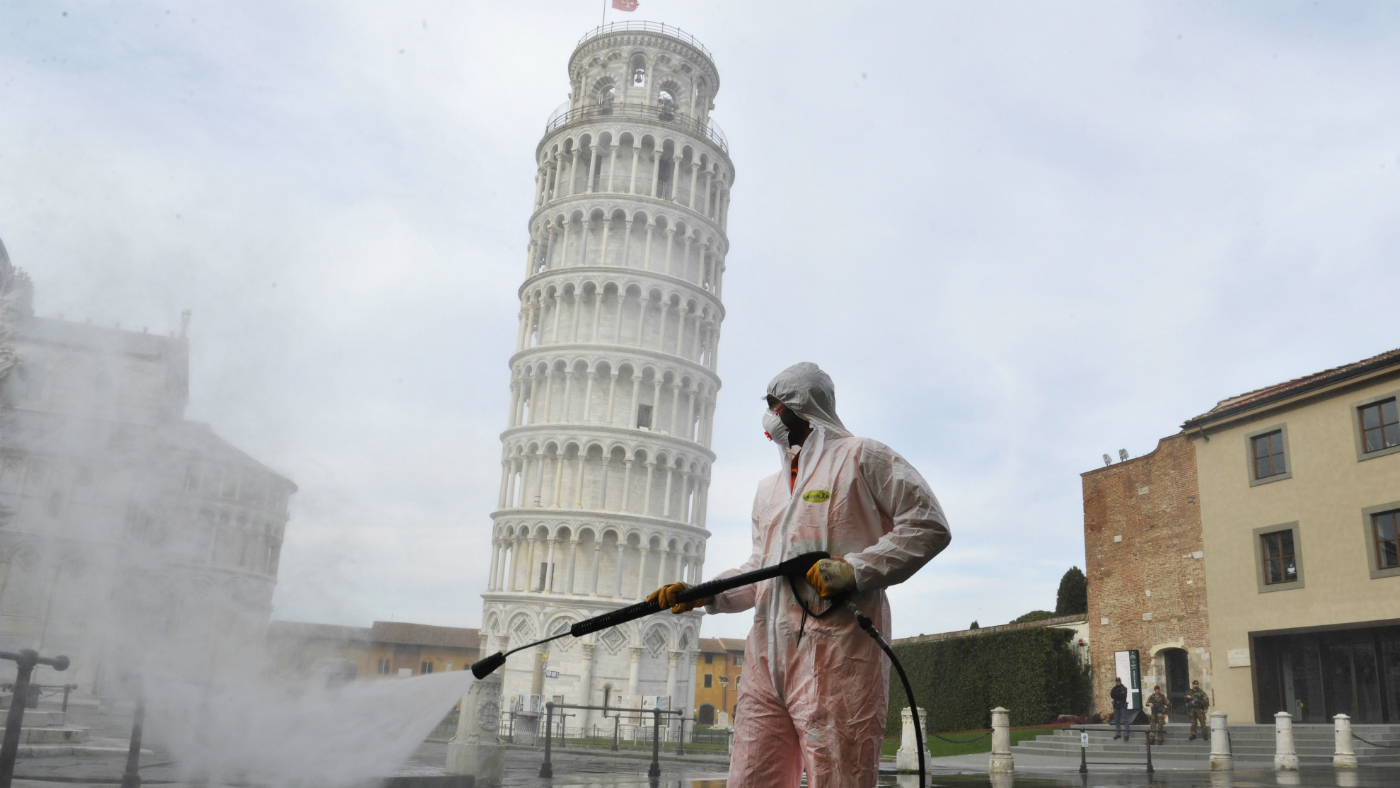Covid-19 circulating in Italy as early as September 2019, study reveals
New research suggests coronavirus may have spread through Europe undetected for several months

A free daily email with the biggest news stories of the day – and the best features from TheWeek.com
You are now subscribed
Your newsletter sign-up was successful
Coronavirus arrived in Italy five months earlier than previously thought, according to researchers who have found Covid-19 antibodies in blood samples taken from Italian people in October last year.
The country’s first official case of the virus “was detected on 21 February in a small town near Milan, in the northern region of Lombardy” says Reuters.
But new tests by the National Cancer Institute in Milan on blood samples given by subjects in a cancer trial imply that a significant number of people had already been infected before that date.
The Week
Escape your echo chamber. Get the facts behind the news, plus analysis from multiple perspectives.

Sign up for The Week's Free Newsletters
From our morning news briefing to a weekly Good News Newsletter, get the best of The Week delivered directly to your inbox.
From our morning news briefing to a weekly Good News Newsletter, get the best of The Week delivered directly to your inbox.
“Four cases dating back to the first week of October were positive for antibodies, meaning they had got infected in September,” institute director Giovanni Apolone, who co-authored the study, told the news agency.
The new research - outlined in a paper in the institute’s scientific magazine Tumori Journal - provides confirmation of what many had already suspected.
“Previously, Italian researchers have said that they reported a higher than usual number of cases of severe pneumonia and flu in Lombardy in the last quarter of 2019 - a sign the new coronavirus might have been present,” Sky News reports.
The Covid-19 virus was first reported in the Chinese city of Wuhan in late December, but US researchers say that internet searches and satellite data showing hospital traffic suggest the epidemic may have started in late summer or early autumn.
A free daily email with the biggest news stories of the day – and the best features from TheWeek.com
Until now, Europe’s earliest case confirmed by blood test appeared to be a French patient who fell ill in December last year. However, the man had not travelled to China, which suggests the virus was already circulating in France by then.
Unconfirmed reports suggest that several French athletes who competed at the World Athletic Games in Wuhan last October may have contracted Covid.
Holden Frith is The Week’s digital director. He also makes regular appearances on “The Week Unwrapped”, speaking about subjects as diverse as vaccine development and bionic bomb-sniffing locusts. He joined The Week in 2013, spending five years editing the magazine’s website. Before that, he was deputy digital editor at The Sunday Times. He has also been TheTimes.co.uk’s technology editor and the launch editor of Wired magazine’s UK website. Holden has worked in journalism for nearly two decades, having started his professional career while completing an English literature degree at Cambridge University. He followed that with a master’s degree in journalism from Northwestern University in Chicago. A keen photographer, he also writes travel features whenever he gets the chance.